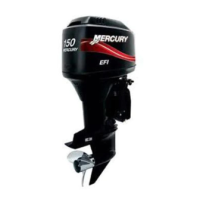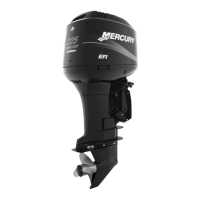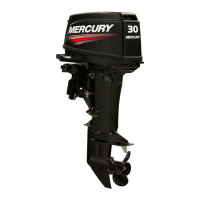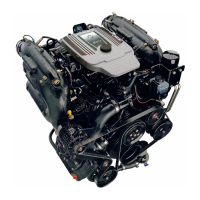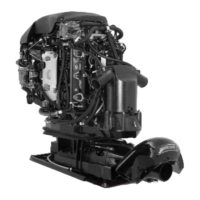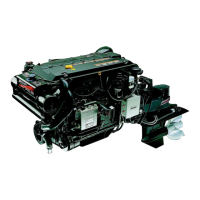13
• Know signs of weather change and avoid foul weather and
rough-sea boating.
• Tell someone where you are going and when you expect to
return.
• Passenger boarding. Stop the engine whenever passengers are
boarding, unloading or are near the back (stern) of the boat. Just
shifting the drive unit into neutral is not sufficient.
• Use personal flotation devices. Federal Law requires that there
be a U. S. Coast Guard approved, wearable-type life jacket
(personal flotation device), correctly sized and readily accessible
for every person on board, plus a throwable cushion or ring. We
strongly advise that everyone wear a life jacket at all times while
in the boat.
• Prepare other boat operators. Instruct at least one person on
board in the basics of starting and operating the engine and boat
handling in case the driver becomes disabled or falls overboard.
• Do not overload your boat. Most boats are rated and certified
for maximum load (weight) capacities (refer to your boat capacity
plate). Know your boat’s operating and loading limitations. Know
if your boat will float if full of water. When in doubt, contact your
dealer or the boats manufacturer.
• Make sure everyone in the boat is properly seated. Don’t allow
anyone to sit or ride on any part of the boat that was not intended
for such use. This includes backs of seats, gunwales, transom,
bow, decks, raised fishing seats, any rotating fishing seat;
anywhere that sudden unexpected acceleration, sudden
stopping, unexpected loss of boat control or sudden boat
movement could cause a person to be thrown overboard or into
the boat. See that all passengers have a proper seat and are in
it before any boat movement.
• Never be under the influence of alcohol or drugs while
boating (it is the law). They impair your judgment and greatly
reduce your ability to react quickly.

